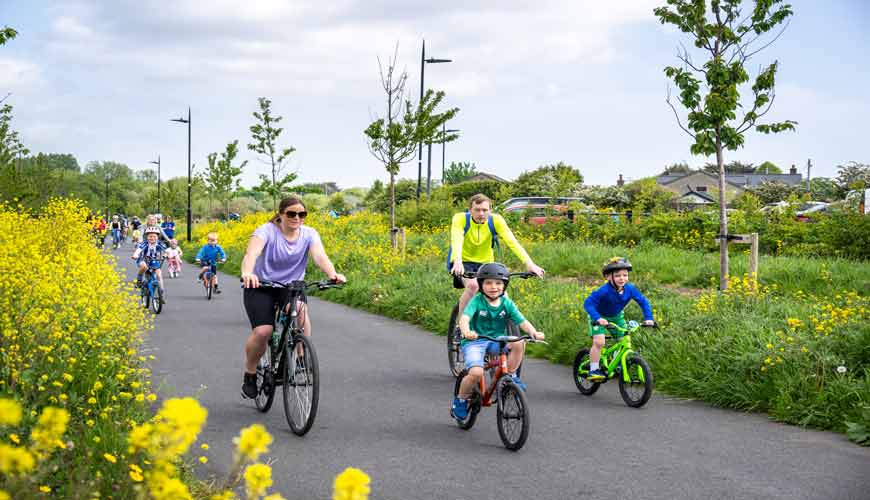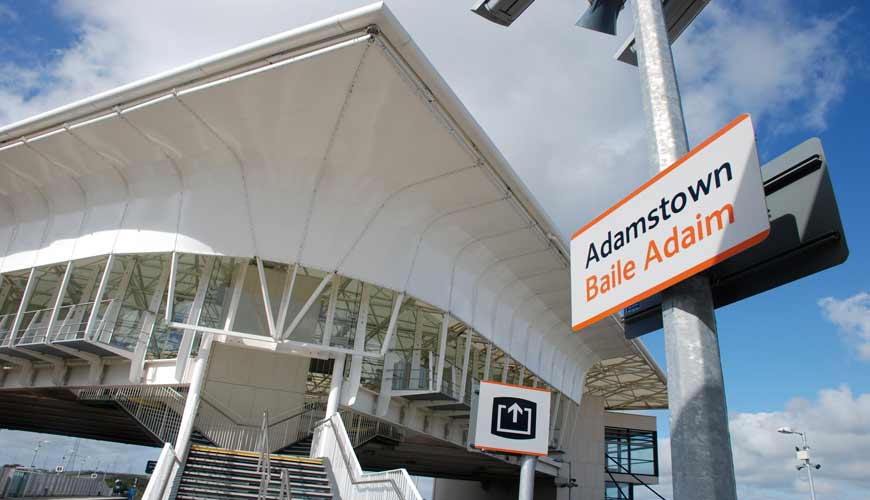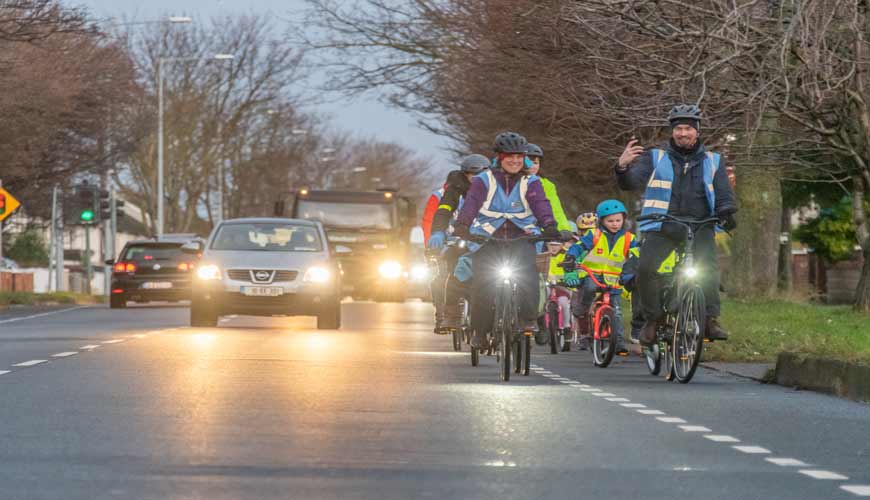Understanding Transport’s Role in Climate Change
Transport makes up just under 20% of our national greenhouse gas emissions, however in an urban area like South Dublin it is responsible for more.
We are investing in cleaner, more sustainable forms of transport in South Dublin to make cycling and walking a viable alternative to the car. Clogged roads not only affect our quality of life and our health but also the economy through millions of euros worth of time lost.
Emissions from traffic result from road vehicles burning diesel or petrol for power. Much like our chimneys and boilers at home, our exhausts are a key driver of climate change.
When in motion, tyres and brakes shed small particles which combined with exhaust emissions create a dangerous cocktail that can enter our bodies as air pollution. In fact, air pollution can often be at its worst inside the vehicle.

Actions We Can Take
As individuals and households, we need to look at how we move about. There is a lot being done at national, regional, and local levels to make transport more sustainable.
While a move away from diesel and petrol vehicles is essential to limiting greenhouse gas emissions in the transport sector, we also need to recognise that Active Travel (walking, cycling, scooting) and public transport are key to delivering our climate targets.
Active Travel
Active Travel is making a journey by walking, cycling or any other form of sustainable transport. Active Travel is a great alternative to sitting in traffic and brings additional health benefits through exercise. When done safely, it is the best option for a climate resilient, less polluted society.
In South Dublin, we are working hard to provide safe routes that make Active Travel a practical solution for people of all ages and abilities.
The Cycle South Dublin programme is designed to provide 260km of new and improved cycle routes, including key routes to local schools. An Active Travel team has been established in the Council and they are working to deliver a number of public realm projects which will deliver a comprehensive and connected cycling and walking infrastructure throughout the county.
Projects such as the Dodder Greenway will link the mountains to Dublin Bay when finished and provide enhanced walking as well as cycling routes for citizens.
Public Transport
Public transport moves significantly more people in one go than the car. With less people in single vehicles, the damage to our climate is reduced and roads are less congested.
South Dublin County Council is working with the National Transport Authority to deliver BusConnects, a project that will improve the speed, quality, and frequency of bus journeys. The project also looks to separate how buses and cyclists interact with other traffic.

Journey Planners
Transport for Ireland have a journey planner that allows you to see public transport and active travel options for your specific journeys. Access the planner here to try it out.
Electric Vehicles
In order to achieve the necessary reductions in greenhouse gas emissions in the coming years, we need to move away from petrol and diesel cars. There are targets in the National Climate Action Plan 2021 to have just under 1 million electric vehicles on the road by 2030.
Battery Electric Vehicles (BEVs) are the best electric vehicle option for climate action. They run entirely on electricity, which is stored in a battery in the car that you recharge when necessary, much like your mobile phone. As the technology improves and the charging infrastructure expands, the issue of not having enough charge for specific journeys is becoming a thing of the past.
Note that Plug in Hybrid Electric Vehicles (PHEVs) still have a mix of either petrol or diesel and a battery, and therefore still contribute to climate change and air pollution.
There are still significant carbon emissions and other environmental factors contained in the production of electric vehicles, so consider moving your journeys to Active Travel and/or public transport if you can.
Car Sharing Options
Shared car services or car clubs allow you to rent the vehicle as you need. Members can book vehicles for short or longer journeys. This can be a great way to not incur the significant cost of owning a car full time, while still giving you the flexibility you need, with less carbon emissions.

Transport to School
It is important that we take action now to limit the worst effects of climate change not only for us but for the next generations. Starting by making changes that our children can be a part of is a good way to create new habits for the next generation and ensure a safer future.
It can begin at school. When doing drop-offs and collections, is there an alternative to using the car? By reducing traffic on the routes to schools and their surrounding areas, we can create less polluted, safer streets for our children.

